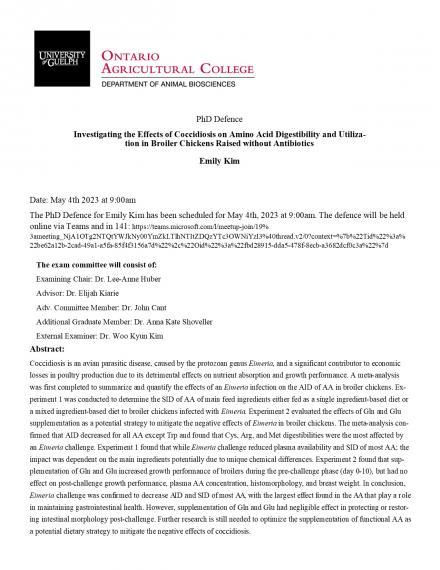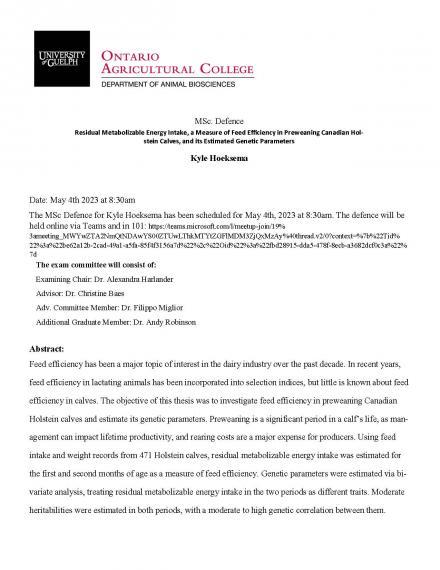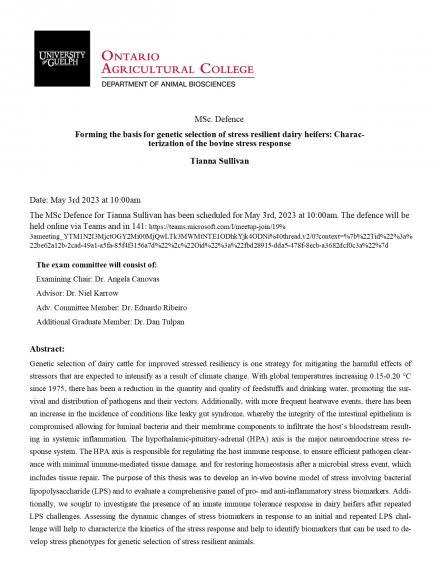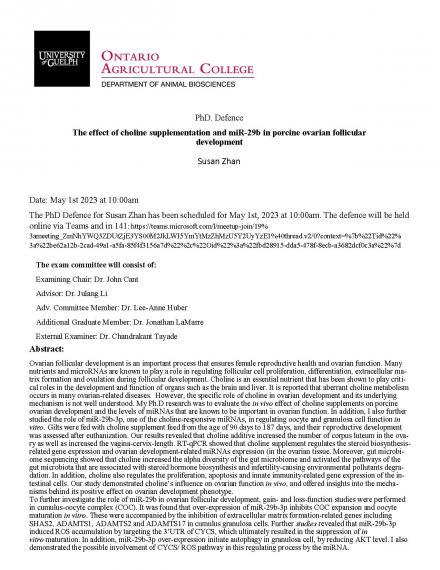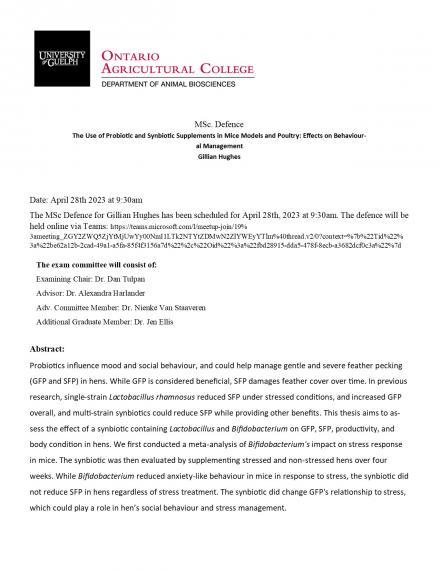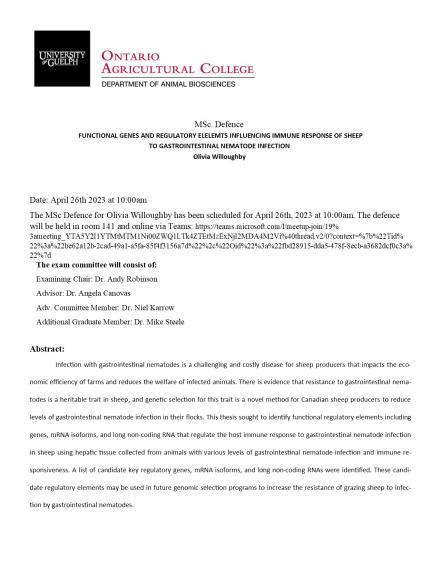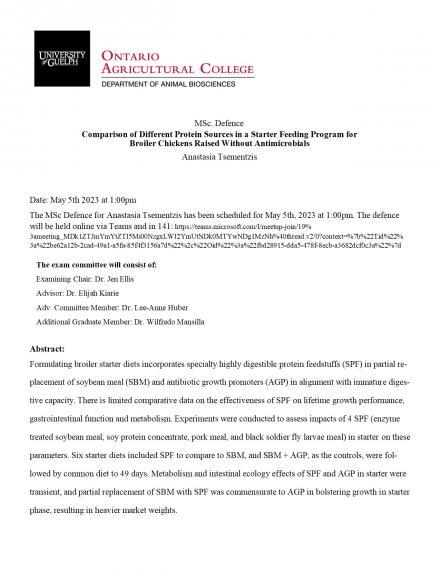
Anastasia Tsementzis
Formulating broiler starter diets incorporates specialty highly digestible protein feedstuffs (SPF) in partial replacement of soybean meal (SBM) and antibiotic growth promoters (AGP) in alignment with immature digestive capacity. There is limited comparative data on the effectiveness of SPF on lifetime growth performance, gastrointestinal function and metabolism. Experiments were conducted to assess impacts of 4 SPF (enzyme treated soybean meal, soy protein concentrate, pork meal, and black soldier fly larvae meal) in starter on these parameters.
